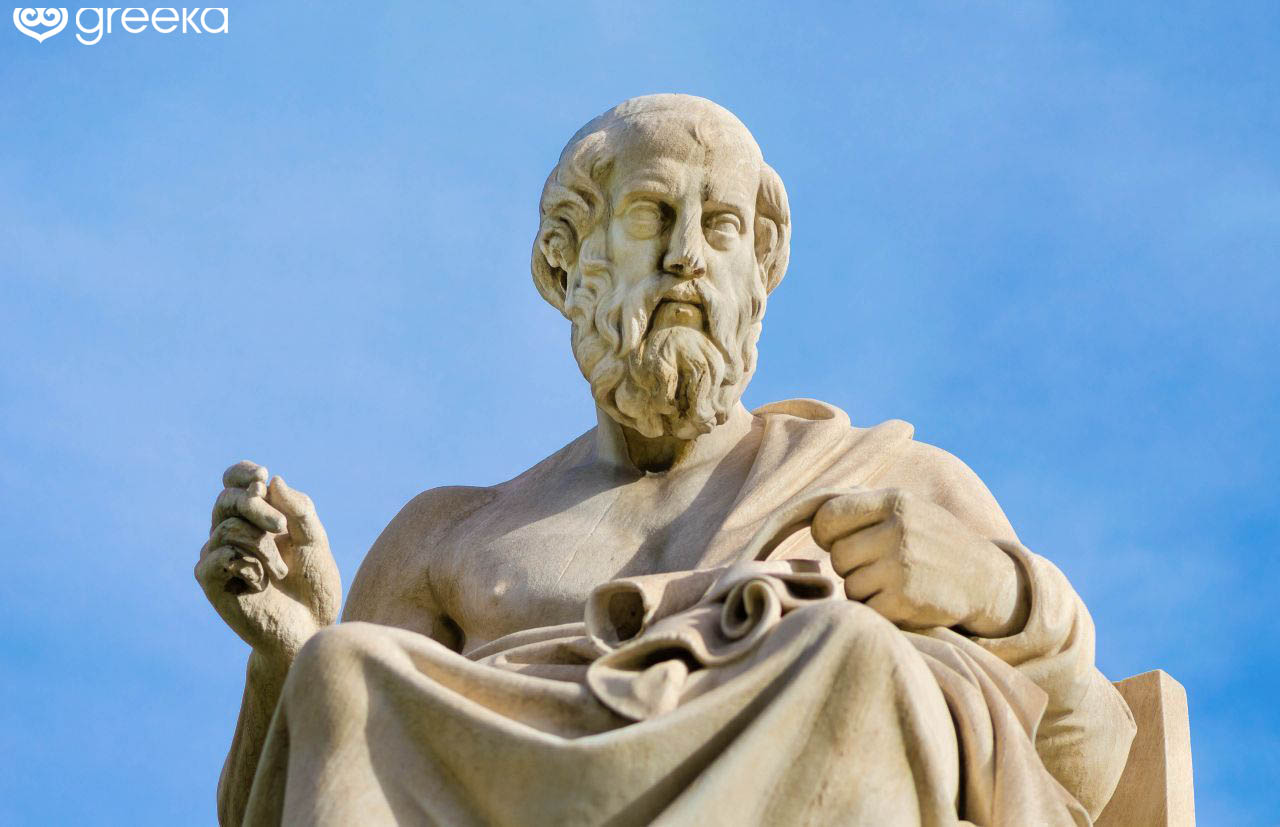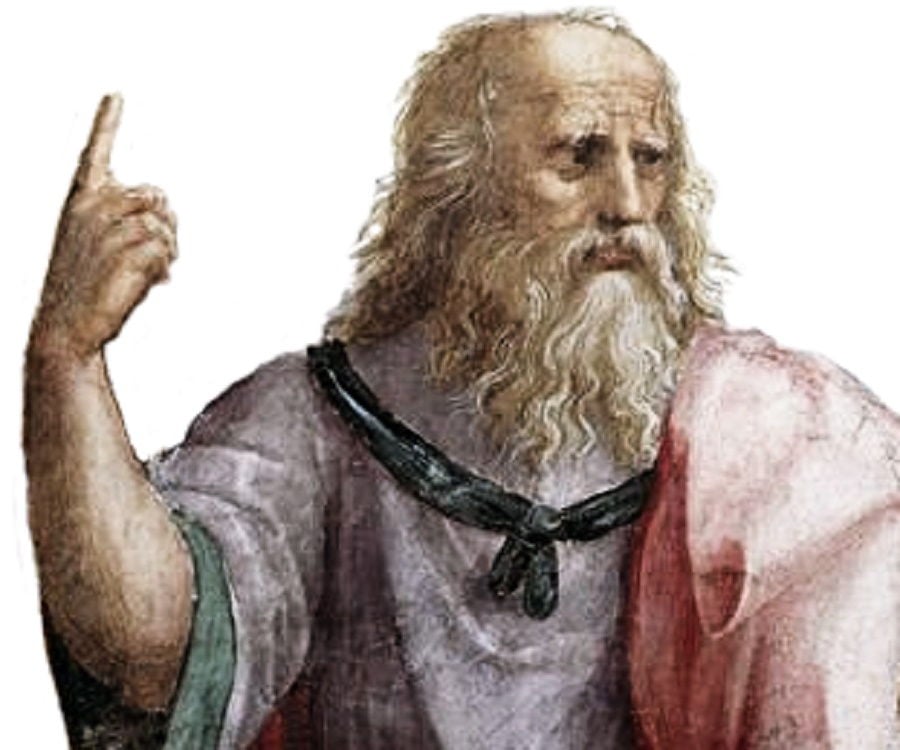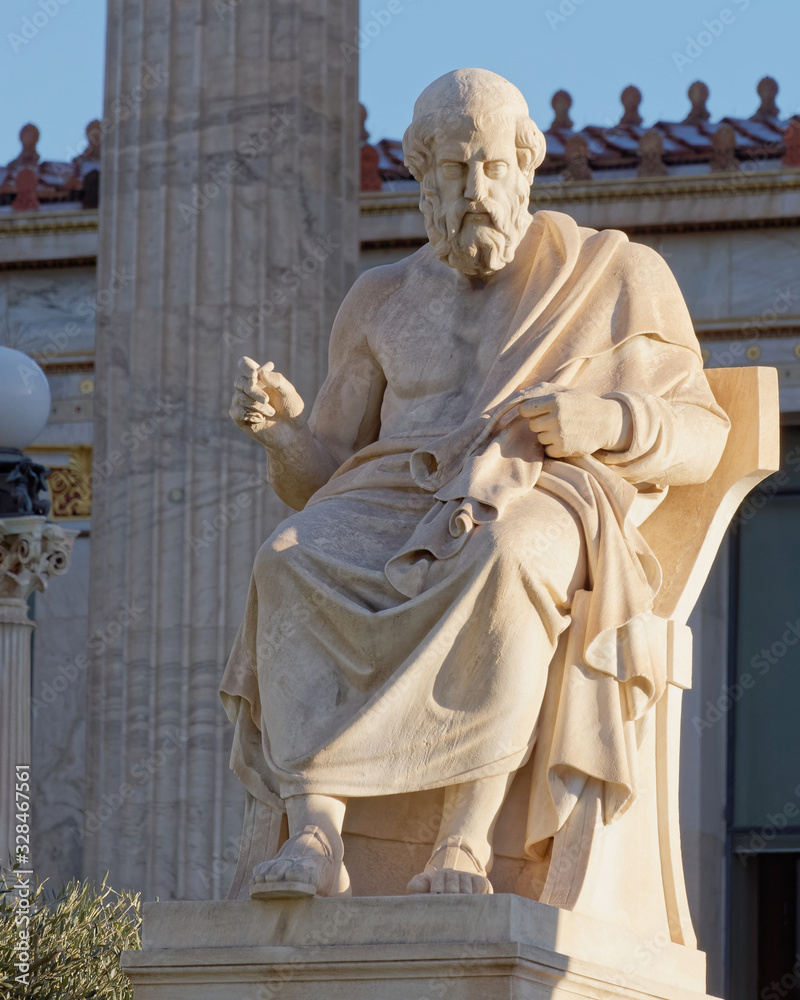When we think about the thinkers who shaped our world, figures like Plato, his teacher Socrates, and his student Aristotle, really stand out as central to the story of Western thought. It's quite something, isn't it, to consider how their ideas, especially Plato's, have continued to resonate through time, almost like a quiet conversation that has been going on for thousands of years.
This ancient Greek philosopher, someone who lived a very long time ago, was born in Athens, Greece, around 428 or 427 BCE. He passed away in the same city, Athens, about 348 or 347 BCE. So, you know, his life spanned a significant period in ancient times, a time when many big ideas were being put forth and discussed.
He was a student of Socrates, a teacher who himself didn't write anything down, which is pretty interesting, right? Plato, on the other hand, made sure to share his teacher's thoughts, along with his own, through a series of writings that have, quite remarkably, survived for over 2,400 years. These works, you see, have had an influence that is just, well, truly unmatched in Western thought, and they remain a foundation for so much of what we think about today.
- Shoes Overpronation Men
- Famous Men Who Have Battled Prostate Cancer
- Junie B Jones Characters
- Kansas City Chiefs Heavy Winter Coats
- Heidi Klum Perfume Surprise
Table of Contents
- Who Was This Thinker, Plato?
- Personal Details - Plato Birth Death Dates and More
- What Makes Plato's Ideas Still Matter?
- How Did His Writings Last Through the Ages?
- Did Plato Travel Much?
- What Were Some of Plato's Big Ideas?
- Plato's Legacy - A Continuing Conversation
Who Was This Thinker, Plato?
Plato, as a person, came from a family that had quite a bit of money in Athens, Greece. This background, you know, probably gave him opportunities that many others didn't have, allowing him to focus on thinking and learning. He became a student of Socrates, a truly famous figure in his own right, and someone who, as we know, had a huge impact on Plato's way of looking at the world. It's almost as if Socrates's words and ways of questioning were so powerful that they just had to be written down, even if Socrates himself didn't do it.
The way Plato chose to share his teacher's ideas, and of course, his own, was through something called "dialogues." These weren't just straightforward essays, but more like conversations between Socrates and various other people. It's a pretty engaging format, actually, because you get to see different viewpoints being discussed and explored, rather than just being told what to think. This method of writing, too, probably helped make his works feel very alive and approachable, even after so many centuries.
These dialogues, you see, weren't just simple chats. They were deep explorations of big questions, with Socrates often leading the way, asking probing questions that made people really think hard about their beliefs. So, in a way, Plato wasn't just recording what Socrates said; he was also showing us how Socrates thought and how he encouraged others to think. This approach, it's fair to say, made his writings incredibly impactful, setting a standard for philosophical inquiry that still influences us today.
- Kansas City Chiefs Winter Coats
- Which Toothbrush Is Better For Sensitive Gums
- A Young Person Who Is Guided By A More Experienced Person In A Career
- 2023 1965
- Autumn Pregnancy Photos
His connection to Socrates was, frankly, a very important part of his identity as a thinker. He took what he learned from his teacher and then built upon it, creating his own vast body of work. It’s almost like he was carrying on a torch, making sure that the light of inquiry and deep thought continued to shine brightly for future generations. This intellectual lineage, from Socrates to Plato and then to Aristotle, is a truly remarkable chain of minds that helped lay the groundwork for so much of what we consider knowledge.
Personal Details - Plato Birth Death Dates and More
To give you a clearer picture of this influential person, here are some key details about him. It helps, I think, to put a bit of a human face to the name, especially when we are talking about someone whose influence has stretched across so many centuries. Knowing his birth and death dates, for example, helps us place him in a specific historical moment, which is rather interesting.
| Detail | Information |
|---|---|
| Name | Plato |
| Birth Year | 428/427 BCE |
| Death Year | 348/347 BCE |
| Place of Birth | Athens, Greece |
| Place of Death | Athens, Greece |
| Key Role | Ancient Greek Philosopher, Founder of the Academy |
| Teacher | Socrates |
| Notable Student | Aristotle |
| Major Contributions | Foundational philosophical works (dialogues), ideas on metaphysics, ethics, political theory, justice, ideal state. |
These simple facts, too, tell us a story about a life lived in a specific place and time. The fact that he was born and died in Athens, for instance, shows his deep connection to that city, which was, at the time, a real center of intellectual activity. It was a place where ideas were debated openly, and where philosophy was very much a part of public life, which is kind of different from how we often think about it today.
What Makes Plato's Ideas Still Matter?
So, you might wonder, what exactly makes Plato's ideas still so important, even after all this time? Well, it's pretty clear that his writings have had an influence that is just truly immense, particularly in what we call Western thought. He didn't just write down a few thoughts; he laid down a groundwork, a kind of fundamental structure for how we approach thinking about so many things. His teachings, you see, are truly foundational to Western philosophy.
His work touches on a whole range of topics, from metaphysics, which is basically thinking about the nature of reality itself, to ethics, which deals with how we should live our lives, and even political theory, which considers how societies should be organized. It's almost like he built a comprehensive system of thought that tried to make sense of the world in a very complete way. This wide reach, you know, is one of the reasons his ideas continue to be discussed and studied.
One of the truly big things he did was to establish an institution called the Academy. This was, in a way, one of the earliest known centers for higher learning in the Western world. It wasn't just a place where he taught; it was a place where people could come together to study, to debate, and to really explore ideas in a structured environment. The Academy, therefore, became a powerful engine for the spread of his ideas and the continuation of philosophical inquiry, even beyond his own lifetime. It's fair to say that its creation was a really significant moment for intellectual life.
The impact of his writings is, well, pretty much everywhere if you look closely at the history of ideas. From the way we think about truth and knowledge to how we consider what makes a good society, his thoughts have seeped into so many different areas. He presented ideas that were, in some respects, quite radical for his time, and yet they have proven to be incredibly enduring, showing just how powerful and thought-provoking they were, and still are.
How Did His Writings Last Through the Ages?
It's genuinely amazing to think that Plato's complete works, or at least what we believe to be his complete works, have managed to survive for over 2,400 years. That's a very long stretch of time, isn't it? When you consider all the things that can happen over centuries – wars, fires, neglect – it's quite a feat that these ancient texts are still available to us. It speaks to the care taken by countless people over generations to copy, preserve, and transmit these precious writings.
The form of his writings, the dialogues, probably played a role in their survival, too. They are engaging and readable, almost like plays, which might have made them more appealing to copyists and readers throughout history. Unlike dry treatises, these conversations often feel very alive, which could have contributed to their enduring popularity and the desire to keep them from being lost. So, in a way, their very nature helped them persist.
The fact that we can still read his thoughts today means that the conversations he started, the questions he posed, are still very much with us. It's almost as if he's still speaking to us, inviting us to think along with him about fundamental aspects of human existence. This continuity of thought, made possible by the survival of his writings, is truly a gift from the past, allowing us to connect directly with a mind from so long ago.
His influence, you see, wasn't just a fleeting thing that happened in ancient Greece. Because his works were so carefully preserved and widely read, his ideas spread far and wide, influencing thinkers across different cultures and time periods. It’s a testament to the power of his thinking that people felt these ideas were important enough to safeguard for future generations, ensuring that the wisdom contained within them would not be lost to time. That, I think, is a pretty cool thing.
Did Plato Travel Much?
While much of Plato's life revolved around Athens, where he was born and where he eventually passed away, he did, in fact, undertake some significant journeys. One of the more notable of these was his travels to Sicily. These trips weren't just for leisure, you know, but were often connected to his philosophical interests and his desire to see his ideas put into practice, particularly those concerning how a good society might be structured. It's fair to say he wasn't just an armchair philosopher.
His experiences during these travels, especially in Sicily, are believed to have deeply influenced his thinking, particularly on key ideas such as justice and what he considered to be the ideal state. Seeing different political systems and interacting with various rulers and thinkers outside of Athens probably gave him a broader perspective. It's almost as if these real-world experiences helped to shape and refine the theoretical frameworks he was developing in his mind and then putting down in his writings.
These journeys, too, underscore the practical side of his philosophy. He wasn't just content to theorize in a classroom; he seemed genuinely interested in how his ideas could actually work in the world. So, his travels to places like Sicily were, in a way, part of his larger philosophical quest, an attempt to bridge the gap between abstract thought and the very real challenges of governing and living together in a just society. It shows a very active and engaged mind, which is pretty inspiring.
What Were Some of Plato's Big Ideas?
Plato's mind was, frankly, buzzing with big ideas, and many of them continue to shape our conversations today. As we've touched upon, two of his most prominent concepts revolved around the nature of justice and the blueprint for an ideal state. He really thought deeply about what makes a society fair and well-ordered, and what kind of government would best serve its people. These weren't just passing thoughts; they were central themes that he explored over and over again in his writings.
His dialogues, which are basically extended conversations, were the main vehicle for sharing these thoughts. Through these back-and-forth discussions, he would present different arguments and perspectives on what justice truly means, or how a perfect society might function. It's almost like he was inviting his readers to join in the intellectual journey, to weigh the arguments themselves and come to their own conclusions, which is a rather engaging way to teach complex subjects.
The concept of the ideal state, for example, was not just a theoretical exercise for him. It was a vision, a kind of guiding star for how human communities could strive for something better. He believed that if people truly understood the principles of justice and wisdom, they could build a society that was harmonious and good for everyone. This kind of aspirational thinking, you know, has had a profound effect on political thought for centuries, prompting many to consider how societies could be improved.
So, his teachings and dialogues are not just historical curiosities; they are, in some respects, living documents that continue to provoke thought and discussion. Whether you agree with all his conclusions or not, the questions he raised about justice, ethics, and the best way to live together are still very relevant. He essentially set the agenda for much of Western philosophy, and his ideas remain a powerful starting point for anyone wanting to think deeply about these fundamental human concerns. That, I think, is a pretty enduring legacy.
Plato's Legacy - A Continuing Conversation
Plato was, without a doubt, a truly famous and influential philosopher, someone whose contributions continue to resonate. He didn't just teach; he also founded a very important institution, the Academy, which became a beacon of learning for centuries. This act of creating a formal place for study and intellectual exchange was, in a way, as significant as his writings themselves, because it helped to ensure that philosophical inquiry would continue to grow and develop.
His learning from Socrates, and then his commitment to sharing those ideas, along with his own, through his unique dialogues, really set him apart. He took the oral tradition of his teacher and transformed it into a written legacy that has endured. It's almost like he built a bridge between the spoken word and the written word, making sure that the profound insights of his time would not be lost to future generations. This dedication to preserving and expanding knowledge is something we can still appreciate today.
The impact of his philosophical works is, well, just immense. They have shaped so much of Western thought, influencing countless thinkers across various fields, from how we understand the very nature of existence to how we think about moral choices and the best forms of government. His ideas, you see, are not just dusty old texts; they are living concepts that continue to be debated, interpreted, and applied in new ways, which is rather fascinating.
So, when we consider Plato's birth and death dates, it's not just about marking a point in history. It's about recognizing the span of a life that produced ideas so powerful, so compelling, that they have literally lasted for thousands of years. He was a thinker who truly changed the course of intellectual history, and his ongoing presence in our discussions about philosophy, ethics, and politics is a clear sign of his enduring relevance. His work, basically, remains a vital part of our collective intellectual heritage.
Related Resources:



Detail Author:
- Name : Jana Hagenes
- Username : ondricka.zelma
- Email : skohler@yahoo.com
- Birthdate : 1979-03-09
- Address : 4889 Gordon View Suite 552 South Florianmouth, WI 69362-7770
- Phone : (843) 910-9164
- Company : Blick, Batz and Shanahan
- Job : Tool Set-Up Operator
- Bio : Consequatur ea commodi qui cum qui. Temporibus ex iusto dolores illo. Possimus voluptas quisquam omnis. Illum aut dolor iusto nam expedita eum.
Socials
instagram:
- url : https://instagram.com/kunzes
- username : kunzes
- bio : Consequatur consequatur voluptatem nihil ab eos maiores. Ea enim exercitationem atque blanditiis.
- followers : 4746
- following : 2876
tiktok:
- url : https://tiktok.com/@sunny_kunze
- username : sunny_kunze
- bio : Culpa aut voluptatem rerum officia est magnam. Veniam illo quia harum vero.
- followers : 278
- following : 1556
facebook:
- url : https://facebook.com/kunze2020
- username : kunze2020
- bio : Necessitatibus a rerum eos suscipit dicta sed quos ut.
- followers : 5298
- following : 463
linkedin:
- url : https://linkedin.com/in/kunzes
- username : kunzes
- bio : Alias sequi sapiente ut sit ipsa maiores.
- followers : 1090
- following : 470